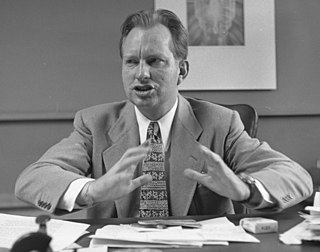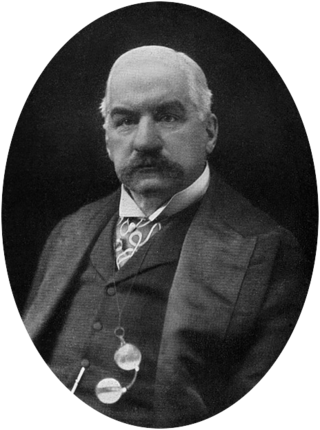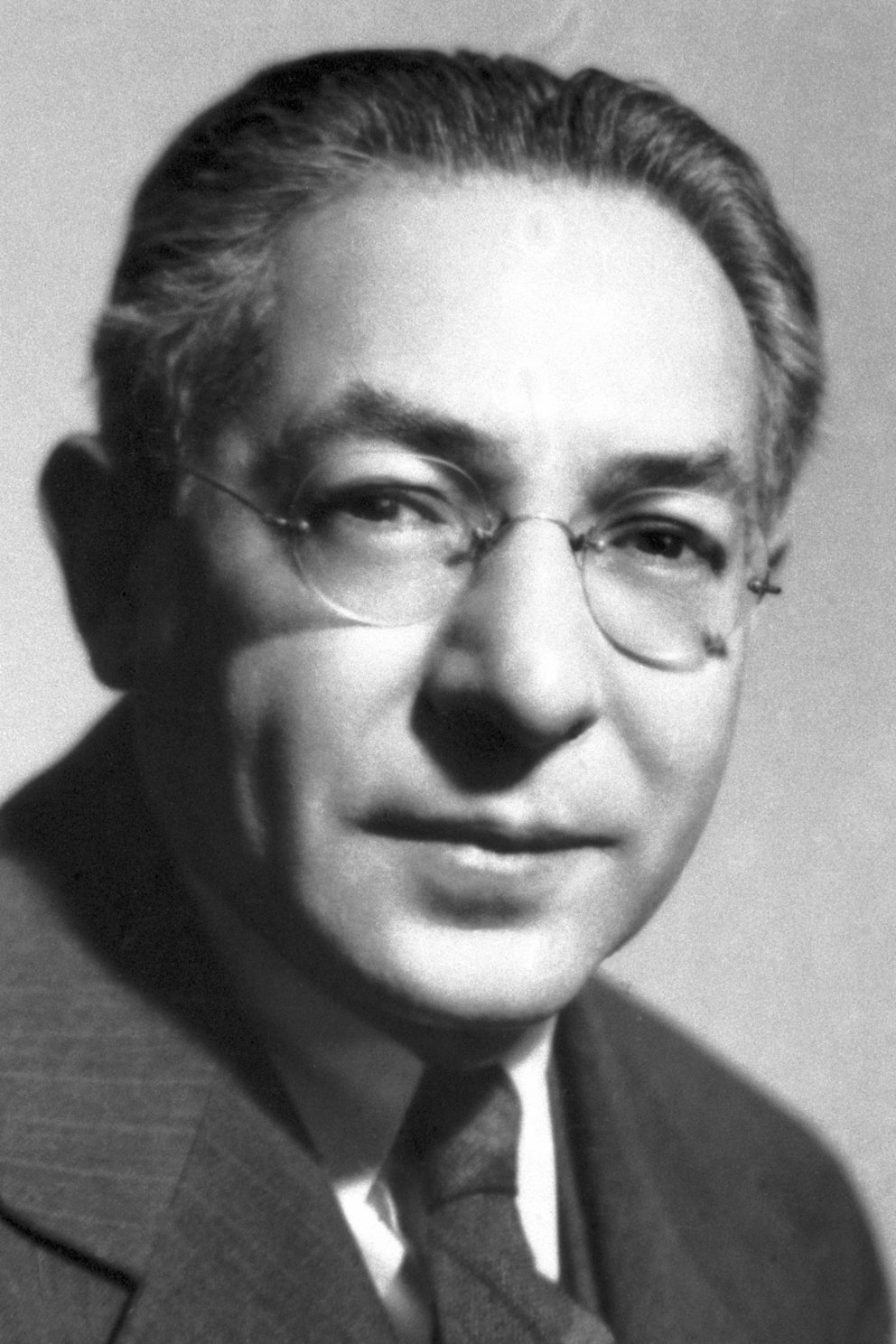
Full Metal Jacket is a 1987 war drama film directed and produced by Stanley Kubrick, who also co-wrote the screenplay with Michael Herr and Gustav Hasford. The film is based on Hasford's 1979 novel The Short-Timers and stars Matthew Modine, R. Lee Ermey, Vincent D'Onofrio, and Adam Baldwin.

Jane Austen was an English novelist known primarily for her six novels, which implicitly interpret, critique, and comment upon the British landed gentry at the end of the 18th century. Austen's plots often explore the dependence of women on marriage for the pursuit of favourable social standing and economic security. Her works are an implicit critique of the novels of sensibility of the second half of the 18th century and are part of the transition to 19th-century literary realism. Her deft use of social commentary, realism and biting irony have earned her acclaim among critics and scholars.

Lafayette Ronald Hubbard was an American author and the founder of Scientology. A prolific writer of pulp science fiction and fantasy novels in his early career, in 1950 he authored Dianetics: The Modern Science of Mental Health and established organizations to promote and practice Dianetics techniques. Hubbard created Scientology in 1952 after losing the intellectual rights to his literature on Dianetics in bankruptcy. He would lead the Church of Scientology, described as a cult, new religious movement or business, until his death in 1986.

William Shakespeare was an English playwright, poet and actor. He is widely regarded as the greatest writer in the English language and the world's pre-eminent dramatist. He is often called England's national poet and the "Bard of Avon". His extant works, including collaborations, consist of some 39 plays, 154 sonnets, three long narrative poems, and a few other verses, some of uncertain authorship. His plays have been translated into every major living language and are performed more often than those of any other playwright. Shakespeare remains arguably the most influential writer in the English language, and his works continue to be studied and reinterpreted.

The 1988 United States presidential election was the 51st quadrennial presidential election held on Tuesday, November 8, 1988. The Republican nominee, incumbent Vice President George H. W. Bush, defeated the Democratic nominee, Governor Michael Dukakis of Massachusetts.

Muammar Muhammad Abu Minyar al-Gaddafi was a Libyan revolutionary, politician and political theorist who ruled Libya from 1969 until his killing in 2011 by NATO-backed rebel forces. He first served as Revolutionary Chairman of the Libyan Arab Republic from 1969 to 1977 and then as the Brotherly Leader of the Great Socialist People's Libyan Arab Jamahiriya from 1977 to 2011. Initially ideologically committed to Arab nationalism and Arab socialism, Gaddafi later ruled according to his own Third International Theory.

Puyi, was the final emperor of China, reigning as the eleventh and final monarch of the Qing dynasty. He was later ruler of the puppet state of Manchukuo under the Empire of Japan from 1934 to 1945. He became emperor at the age of two in 1908, but was forced to abdicate at the age of six in 1912 during the Xinhai Revolution. During his first reign he was known as the Xuantong Emperor, with his era name meaning "proclamation of unity".

In fiction, a character is a person or other being in a narrative. The character may be entirely fictional or based on a real-life person, in which case the distinction of a "fictional" versus "real" character may be made. Derived from the Ancient Greek word χαρακτήρ, the English word dates from the Restoration, although it became widely used after its appearance in Tom Jones by Henry Fielding in 1749. From this, the sense of "a part played by an actor" developed. Character, particularly when enacted by an actor in the theater or cinema, involves "the illusion of being a human person". In literature, characters guide readers through their stories, helping them to understand plots and ponder themes. Since the end of the 18th century, the phrase "in character" has been used to describe an effective impersonation by an actor. Since the 19th century, the art of creating characters, as practiced by actors or writers, has been called characterization.
Lilakoi Moon, known professionally as Lisa Bonet, is an American actress. She portrayed Denise Huxtable on the sitcom The Cosby Show (1984–1992), for which she earned widespread acclaim and a nomination for the Primetime Emmy Award for Outstanding Supporting Actress in a Comedy Series in 1986; she reprised the role of Denise in the spinoff series A Different World (1987–1993).

Dame Angela Brigid Lansbury was a British and American actress and singer. In a career spanning eighty years, she played various roles across film, stage, and television. Although based for much of her life in the United States, her work attracted international attention.

John Pierpont Morgan was an American financier and investment banker who dominated corporate finance on Wall Street throughout the Gilded Age and Progressive Era. As the head of the banking firm that ultimately became known as J.P. Morgan and Co., he was a driving personal force behind the wave of industrial consolidations in the United States at the turn of the twentieth century.

Isidor Isaac Rabi was an American physicist who won the Nobel Prize in Physics in 1944 for his discovery of nuclear magnetic resonance, which is used in magnetic resonance imaging (MRI). He was also one of the first scientists in the United States to work on the cavity magnetron, which is used in microwave radar and microwave ovens.

Chinchillas are either of two species of crepuscular rodents of the parvorder Caviomorpha. and are native to the Andes mountains in South America. They live in colonies called "herds" at high elevations up to 4,270 m (14,000 ft). Historically, chinchillas lived in an area that included parts of Bolivia, Peru and Chile, but today, colonies in the wild are known only in Chile. Along with their relatives, viscachas, they make up the family Chinchillidae. They are also related to the chinchilla rat.

The 1987 United Kingdom general election was held on Thursday 11 June 1987, to elect 650 members to the House of Commons. The election was the third consecutive general election victory for the Conservative Party, who won a majority of 102 seats and second landslide under the leadership of Margaret Thatcher, who became the first Prime Minister since the Earl of Liverpool in 1820 to lead a party into three successive electoral victories.

Predator is a 1987 American science fiction action film directed by John McTiernan and written by brothers Jim and John Thomas. It is the first installment in the Predator franchise. Arnold Schwarzenegger stars as Dutch Schaefer, the leader of an elite paramilitary rescue team on a mission to save hostages in guerrilla-held territory in a Central American rainforest, who encounter the deadly Predator, a skilled, technologically advanced alien who stalks and hunts them down. Carl Weathers, Elpidia Carrillo, Bill Duke, Richard Chaves, Jesse Ventura, Sonny Landham, and Shane Black are supporting co-stars.

RoboCop is a 1987 American science fiction action film directed by Paul Verhoeven and written by Edward Neumeier and Michael Miner. The film stars Peter Weller, Nancy Allen, Daniel O'Herlihy, Ronny Cox, Kurtwood Smith, and Miguel Ferrer. Set in a crime-ridden Detroit in the near future, RoboCop centers on police officer Alex Murphy (Weller) who is murdered by a gang of criminals and subsequently revived by the megacorporation Omni Consumer Products as the cyborg law enforcer RoboCop. Unaware of his former life, RoboCop executes a campaign against crime while coming to terms with the lingering fragments of his humanity.

Bad is the seventh studio album by the American singer and songwriter Michael Jackson. It was released on August 31, 1987, by Epic Records, nearly five years after Jackson's previous album, Thriller (1982). Written and recorded between January 1985 and July 1987, Bad was the third and final collaboration between Jackson and producer Quincy Jones, with Jackson co-producing and composing all but two tracks. Jackson adopted an edgy look and sound with Bad, departing from his signature groove-based style and high-pitched vocals. The album incorporates pop, rock, funk, R&B, dance, soul, and hard rock styles. Jackson also experimented with newer recording technology, including digital synthesizers and drum machines, resulting in a sleeker and more aggressive sound. Jackson wrote nine of the eleven songs on the album. Lyrical themes on the album include media bias, paranoia, racial profiling, romance, self-improvement, and world peace. The album features appearances from Siedah Garrett and Stevie Wonder.
"La Bamba" is a Mexican folk song, originally from the state of Veracruz, also known as "La Bomba". The song is best known from a 1958 adaptation by Ritchie Valens, a Top 40 hit in the U.S. charts. Valens's version is ranked number 345 on Rolling Stone magazine′s list of the 500 Greatest Songs of All Time.

"I Wanna Dance with Somebody (Who Loves Me)" is a song recorded by American singer Whitney Houston for her second studio album, Whitney (1987). It was released as the lead single from the album on May 2, 1987, by Arista Records. It was produced by Narada Michael Walden, and written by George Merrill and Shannon Rubicam, of the band Boy Meets Girl, who had previously collaborated with Houston on "How Will I Know".

"Never Gonna Give You Up" is a song by English singer Rick Astley, released on 27 July 1987. Written and produced by Stock Aitken Waterman, it was released by RCA Records as the first single from Astley's debut studio album, Whenever You Need Somebody (1987). The song became a worldwide hit, initially in the United Kingdom in 1987, where it stayed at the top of the chart for five weeks and was the best-selling single of that year. It eventually topped charts in 25 different countries, including the United States and West Germany, and winning Best British Single at the 1988 Brit Awards. The song is widely regarded as Astley's most popular, as well as his signature and it is often played at the end of his live concerts.


















